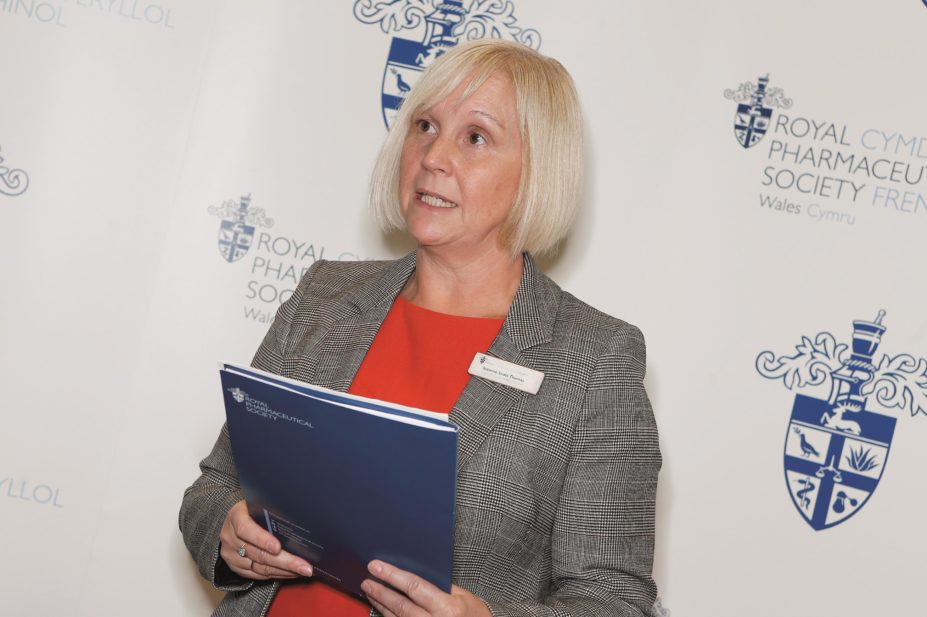
Royal Pharmaceutical Society
The Royal Pharmaceutical Society’s (RPS) policy strategy for Wales – ‘Steps to better health and wellbeing’ – calls for commitment to increase patient access to health and well-being by way of its three key messages: to establish a pharmacy-led Welsh chronic medication service; to permit pharmacist access to the individual health record; and to fully integrate pharmacy expertise into multidisciplinary teams. RPS Wales is currently debating these three messages with political parties in the run up to the National Assembly for Wales elections to be held in May 2016.
How do you feel the pharmacy landscape in Wales has changed over the last year?
In Wales, healthcare is changing at pace and prudent healthcare has greatly influenced this. There is a will to see pharmacists delivering services as part of the patient pathway. In the last 6 months, 62 ‘clusters’ of general practices were approved by the Welsh Government for GPs to deliver more collaborative services within primary care and they’ve been awarded funding to develop that way of working. As part of that, some of the clusters have chosen to employ pharmacists.
How did you decide on the three key messages in the policy vision?
The three key messages link into the government agenda – how can pharmacy improve the care of the patient in Wales, and what is happening with the NHS in Wales? We talked to stakeholders and members from all sectors of the profession and asked what they felt was important in delivering patient care and how we as a profession can put it forward. What patients want is important as well. Co-production is also a part of the political agenda, it’s about making joint decisions with patients, whatever level you are.
What progress has been made to roll out your three key messages so far?
We have a work programme around the three key messages, in terms of lobbying and influencing. We’ve also got a work programme around assembly members who are up for election and, post election, the newly-elected assembly members. Separate to that, the second of our major campaigns next year is around establishing a pharmacy-led Welsh chronic medication service. The new approach we’ll be using in Wales will not just be RPS-led but also working with our stakeholders to make sure that what we are proposing is deliverable in Wales.
What has the response from GPs been like regarding the policy vision?
We’ve had very positive support from GPs, they put out a joint statement about how community pharmacists and GPs can work together to improve patient care, and they have supported the appropriate access to the independent health record (IHR) where there is patient consent.
What has the reaction from the party representatives been like during your engagements with the Welsh political parties?
Very positive, from all the political parties. They seem very interested in what we’re saying because in this time of austerity and change in healthcare we offer solutions – we are showing how pharmacists can be better utilised to deliver prudent and better healthcare.
In the vision you mention the discharge medicines review (DMR) service as an example of where the skills of pharmacists can improve patient safety – what improvements have you seen?
A reduction in the risk of medication errors and adverse drug reactions by the availability of accurate information about patient’s medicines, avoiding medicines-related admissions to hospitals or care homes.
What have been the results of the ‘Choose Pharmacy’ pilots?
In 2013, the ‘Choose Pharmacy’ service was piloted in two small localities in Wales (Cwm Taf and Betsi Cadwaladr) so only those 32 pharmacies currently can have the electronic DMR. The ‘Choose Pharmacy’ evaluation was published in July 2015 and the recommendations are being considered by the Welsh Government as to how this can support unscheduled and out-of-hours care. There will probably be plans by the health boards for it to be put into strategic pharmacies to support out of hours.
What was recognised was how well the GP practice and community pharmacies worked in partnership to develop and run the service. I think that was key moving forward.
In the policy vision it says that a percentage of independent prescribers in Wales have not been given the opportunity to utilise their skills – is this still the case?
I really think that time has moved on and opportunities have emerged, particularly in primary care, for pharmacists. The independent prescribing courses are fully subscribed and extra courses are being offered to support this. In secondary care, part of prudent healthcare is about a multidisciplinary team and pharmacists are being recognised as part of that. Cwm Taf has just appointed an independent prescriber (IP) in clinical haematology. They can’t get a haematologist so we’re helping provide that service for patients. I am confident that we will see an increase in the use of independent prescriber pharmacists across all healthcare areas soon.
What challenges are pharmacists in Wales currently facing and how should they go forward as a profession?
We have to make sure we have enough pharmacists coming through the system with the right skills to achieve the challenges we have in all sectors of healthcare. Like England, austerity’s not going away, we have to look at things another way without reducing care to the patients but actually improving care for patients. It is a very exciting time for the profession, there are many opportunities for us to really be part of the NHS and we really want every pharmacist in Wales, wherever they are, to rise to the challenge to be part of this integrated profession wrapped around the patient.

